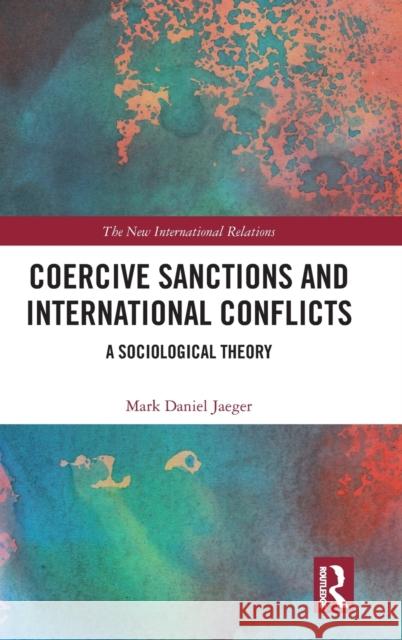Coercive Sanctions and International Conflicts: A Sociological Theory » książka
Coercive Sanctions and International Conflicts: A Sociological Theory
ISBN-13: 9781138697171 / Angielski / Twarda / 2018 / 254 str.
Coercive Sanctions and International Conflicts: A Sociological Theory
ISBN-13: 9781138697171 / Angielski / Twarda / 2018 / 254 str.
(netto: 694,26 VAT: 5%)
Najniższa cena z 30 dni: 654,86 zł
ok. 16-18 dni roboczych.
Darmowa dostawa!
The most notorious question raised in the literature on coercive international sanctions is: "Do sanctions work?" Unsurprisingly, answers to such a sweeping question remain inconclusive. However, even coercive sanctions' widely presumed logic of economic impact translating into political pressure is not the primary driver of conflict developments. Furthermore, existing literature widely neglects one of the most striking differences across sanctions conflicts: the increasing occurrence of positive sanctions or their combination with negative sanctions, implicitly taking them as logically indifferent. Instead of asking whether sanctions work, this book addresses a more basic question: how do coercive international sanctions work, and more substantially, what are the social conditions within sanctions conflicts that are conducive to either cooperation or non-cooperation? The author argues that coercive sanctions and international conflicts are socially constructed facts, and examines the social processes involved in the formation of meaning that sanctions and conflicts acquire. On the one hand, whether sanctions are conducive either to cooperation or non-cooperation depends on how agents construct them in ongoing conflict. On the other hand, negative sanctions, positive sanctions, or the combination of both contribute differently to how agents construct conflict, and to its potential transformation. Given these crucial processes, any efforts to 'predict' the political effectiveness of sanctions based on economic impact are premature. This book presents an empirical analysis of the construction of coercive sanctions in the conflict between China and Taiwan, illustrating how negative sanctions, positive sanctions, and their combination contributed distinctly to conflict development and cooperation prospects. It will be of great interest to researchers, postgraduates and academics in the fields of international relations, sanctions, and international security.











